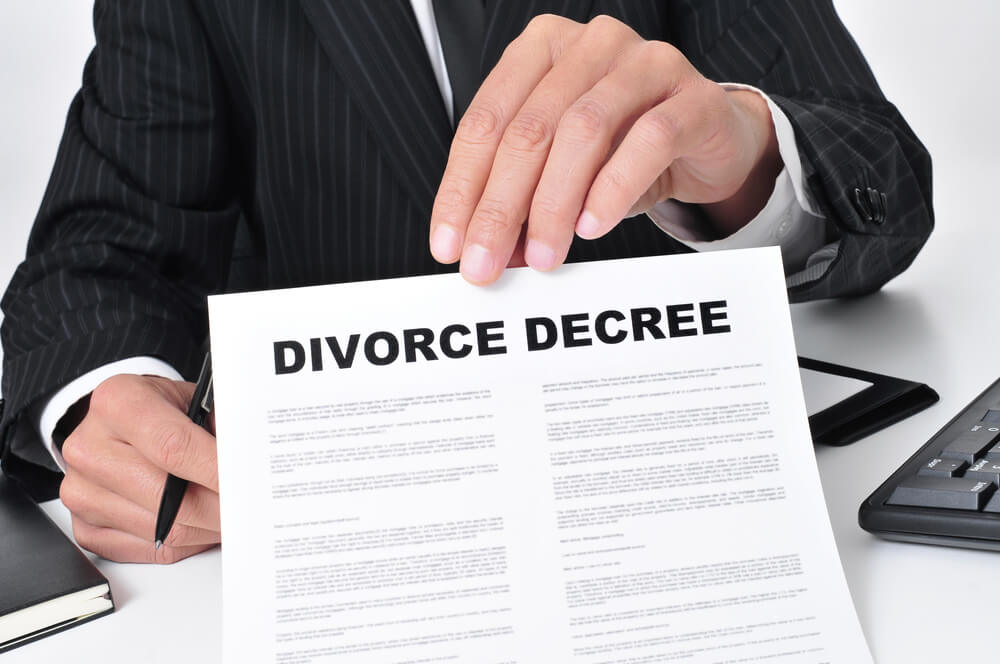Divorce is a complex and emotionally charged process that usually brings long, contentious court battles to mind.
However, not all divorces are like this, and many couples opt for a more amicable route, known as an uncontested divorce. This type of divorce occurs when both spouses can reach an agreement on all aspects of their separation, including property distribution, child custody, and support arrangements. Seeking the assistance of a divorce law lawyer can facilitate the process and ensure the legal aspects are properly addressed.
In this guide, we will explore the process of an uncontested divorce, its benefits and limitations, and how it can lead to a smoother, less stressful resolution for all parties involved.
Benefits
An uncontested divorce offers several key benefits. By agreeing on all issues, spouses can avoid a contested divorce's conflict and adversarial nature. An uncontested divorce allows the couple to end their marriage on a cooperative note, which can be better for their own well-being and any children involved.
Uncontested divorces typically require less attorney and court time, resulting in lower legal fees. There are also fewer court appearances and less paperwork required. Spouses can save money by drafting the divorce agreement or with minimal attorney assistance.
Couples do not have to wait for a court date to schedule hearings, present arguments, and call witnesses. After any mandatory waiting periods, finalizing an uncontested divorce is usually much faster than a contested divorce. Some may obtain their divorce decree in as little as a few months.
By settling matters out of court, spouses can keep the details of their divorce private and confidential. Financial, family, and personal issues do not become part of the public court record, an appealing benefit for public figures or those with sensitive information at stake.
Agreement on All Issues

To obtain an uncontested divorce, spouses must agree on all relevant aspects of the separation. Spouses must determine how to divide assets like the marital home, financial accounts, vehicles, and other property between them. They must also agree on the division of any matrimonial debts.
If the couple has children, they must establish legal custody (decision-making authority) and physical custody (residential arrangements). They must agree on a parenting plan and visitation schedule that protects the children's best interests. Along with custody, spouses must determine an appropriate amount of child support payable, including agreeing on who will pay child support, how much they will pay, and how long support will continue. The support amount should reflect the income and circumstances of both parents.
If one spouse has been financially dependent on the other during the marriage, the couple must decide if and who will pay any spousal support (alimony). They must determine the type of support (temporary versus long-term), amount, and duration of payments. All cases do not result in spousal support awards.
Spouses may also need to reach an agreement on other matters such as tax filing, insurance policies, and estate planning. The couple must address all areas of possible contention to ensure a comprehensive settlement.
The key to a successful uncontested divorce is open communication and a willingness to compromise when possible. However, each spouse should consult an attorney before signing the divorce agreement. While uncontested, it is a legally binding contract, and an attorney can protect your rights and interests.
No-Fault Grounds
Couples usually file for an uncontested divorce on no-fault grounds. This means neither spouse alleges blame or wrong doing for the marriage breakdown.
The most common no-fault grounds include:
- Irreconcilable differences: This means that the spouses have irresolvable marital issues that have caused the irrevocable breakdown of the marriage.
- Irretrievable breakdown: This is similar to irreconcilable differences and alleges that the marriage has broken down for unrepairable reasons. Most states recognize irretrievable breakdown as grounds for a no-fault divorce.
- Living separate and apart: In some states, living separate and apart for a statutory period (often two to five years) constitutes a no-fault ground for divorce. During this time, there is no possibility of reconciliation.
Some jurisdictions may recognize other no-fault grounds besides these common ones. If the initial divorce petition meets and includes one statutory ground, a couple can proceed with an uncontested, no-fault divorce. No-fault grounds do not require provable wrongdoing by either party, allowing them to end a marriage that is no longer viable without unnecessary conflict or drama.
Filing Requirements
One party must file certain documents with the court to initiate an uncontested divorce.
These include:
- Divorce petition or complaint: One spouse, called the petitioner, files an initial petition or complaint with the court alleging grounds for a no-fault divorce and requesting dissolution of the marriage.
- Supporting documents: Supporting documents that outline the key terms of the divorce agreement regarding property, finances, children, and other relevant issues accompany the petition. Depending on local requirements, these may include financial disclosures, a property settlement agreement, a parenting plan, and child support worksheets.
- Waiver of service: The other spouse, called the respondent, typically signs a waiver of service indicating they voluntarily accept the petition and do not need to be formally served with court papers. By signing, they waive their right to challenge service requirements.
- Settlement agreement: Some jurisdictions require an official settlement agreement filed as part of the supporting documents. The judge will review the agreement to ensure compliance before granting the divorce petition. Even if not required, it is beneficial to create a comprehensive written contract outlining all terms mutually agreed upon by both spouses.
Completing and filing all required divorce paperwork together allows spouses to proceed with an uncontested, no-fault divorce. Provided they have met any mandatory separation period required by local law, they can put the finishing touches on ending their marriage cooperatively with minimal court involvement or oversight. However, as with the pre-divorce agreement, each spouse should consult an attorney before filing to protect their rights.
Residency Requirements
Before a couple can file for divorce, one or both spouses must meet the state and county's residency requirements. Most states require that at least one spouse reside in the state for a minimum period (typically 3 months to 1 year) before filing for divorce.
Besides state residency, one spouse must usually reside in a particular county for a certain period (often 30 days to six months) to file in that county's court system. They must establish county residency before filing the divorce petition.
Some states make exceptions to the normal residency requirements in certain situations, such as domestic violence cases. There are also exceptions for military personnel. It is best to check with the laws of your specific state for details on residency exceptions.
The purpose of residency requirements is to ensure that the court has proper jurisdiction over the case and that the state has an interest in the marital relationship and its dissolution. While waiting to meet residency can prolong an arduous process, strict adherence to these requirements is necessary for granting a divorce appropriately. Attempting to circumvent them may cause serious legal issues down the line.
For spouses who live in different states or counties at the time of filing, determining the proper location to file for divorce can require additional consideration. It may come down to which court has the most substantial connection to the marital relationship and which state's laws are most favorable. However, as a general rule, it is best to file in the location that will be most convenient and cost-effective for both parties overall. Lawyers from both states may be required to provide input on venue selection.
Waiting Periods
Some states require a statutory waiting period between filing a petition for divorce and issuing the divorce decree. Waiting periods typically vary from 30 to 90 days but can last as long as one year. Waiting periods allow time for possible reconciliation, ensure all terms of the divorce agreement are satisfactory, and prevent a spouse from obtaining a divorce in another jurisdiction or remarrying quickly in another state.
During the waiting period, the spouses must comply with court orders regarding property, finances, child custody, and support. They must also refrain from selling or gifting marital assets during this time.
In some situations, a judge may waive the waiting period or reduce it upon request by both spouses, especially if the couple has already established irreconcilable differences and a settlement agreement. However, entirely judicial discretion applies to waivers that are not guaranteed and depend entirely on judicial discretion.
If spouses reside in a state with an extensive waiting period (6 months to 2 years), they may wish to establish a separate pre-divorce agreement to address interim issues like child custody, asset division, and bill payments. Although only legally binding once incorporated into a final divorce decree, a pre-divorce agreement can provide stability during a lengthy separation period.
While waiting periods should benefit couples by giving them adequate time to reconsider divorce, they can also draw out an already painstaking process. However, there are some steps spouses can take to make the most of mandatory waiting periods and ease the transition into post-divorce life. The couple can cope with the waiting phase of an uncontested divorce by maintaining open communication, complying with all court orders, and establishing temporary arrangements.
Court Involvement
Although uncontested divorces require less court time than contested divorces, they will involve a judge or magistrate. The judge will review the divorce agreement drafted by both spouses to ensure it conforms to the state's laws. Once approved, the final divorce decree will incorporate the key terms of the agreement.
After the waiting period and the settlement agreement is approved, the judge will issue a divorce decree officially terminating the marriage. Both spouses receive copies of the agreement for their records. If one or both spouses fail to follow the terms of the approved settlement agreement after the granting of the divorce, the judge may become involved again.
Mediation can handle minor issues, but willful noncompliance can result in contempt of court charges or mandated modifications to the agreement.
While spouses in an uncontested divorce work together outside of court to come to an agreement, the judge still plays an essential role in reviewing, approving, and enforcing its terms when necessary. The main objective is to craft a comprehensive, fair, lawful divorce settlement.
When possible, judges may also refer couples to mediation to resolve post-divorce disputes instead of repeated court hearings. The key to limiting judicial involvement rests primarily with how cooperative and proactive the spouses are throughout the process.
Legal Representation
While spouses can represent themselves in an uncontested divorce, it is advisable to hire an attorney. Even once the couple reaches an agreement, legal rights and obligations are still involved in the dissolution of a marriage.
An attorney will review the settlement and offer guidance to safeguard individual interests. For couples with substantial assets, debts, investments, or business interests, the division of property and determining its value can be quite complicated. An attorney well-versed in family law and economics can handle these complex matters.
Instead of drafting their settlement piecemeal without professional experience, spouses can work with lawyers to create a comprehensive agreement that the judge will readily approve, avoiding revisions and extended court time, which will save money in the long run.
Lawyers can also offer an objective third-party perspective. Instead of negotiating emotionally, they rely on the law to determine a fair outcome. While still advocating for their client's interests, they aim for a solution equitable to both parties.
If spouses live in different states, their choice of where to file for divorce and consult with attorneys involves evaluating several factors. Experienced counsel from both states may need to collaborate to determine the best and proper venue and jurisdiction for the case.
While do-it-yourself options may save money initially, they often cost more in terms of time, mistakes, and potential legal issues. For most spouses, sharing legal representation or consulting individually with attorneys is worth the investment for an efficient, uncontested divorce. At a minimum, it provides peace of mind and guidance through an undoubtedly difficult life transition.
Mediation and Collaboration
Alternative dispute resolution methods like mediation and collaborative divorce provide helpful options for couples who wish to avoid litigation and its associated costs.
A mediator facilitates communication between spouses to help them negotiate the terms of their divorce settlement. Instead of arguing positions in court, spouses work with each other cooperatively to reach an agreement they are both satisfied with. Mediation is generally faster, less expensive, and less adversarial than litigation. Spouses must submit mediation agreements for judicial approval in the divorce.
In collaborative divorce, each spouse hires a collaboratively trained attorney to guide them through negotiations. Along with attorneys, a collaborative divorce team may include financial specialists, counselors, child specialists, and divorce coaches. The goal is to resolve disputes respectfully without going to court. If the collaborative process breaks down, the attorneys must withdraw, and the spouses must start over with new counsel. This unique model aims specifically to keep matters out of court.
These alternative options may not be ideal for couples struggling with communication or in high-conflict situations. However, mediation and collaborative divorce have shown promising results for uncontested divorces where spouses wish to end their marriage as cooperatively and respectfully as possible.
Engaging in open communication with professionals' guidance can craft unique solutions that suit their family's specific needs post-divorce. In the end, the spouses themselves remain in control of how aggressively adversarial or amicably cooperative they choose to make the dissolution of their marriage.
An Attorney Can Help You Navigate Divorce

While spouses may reach an agreement independently, consulting with or hiring an attorney is highly advisable to ensure individual rights and interests are legally protected. An experienced family law attorney in Myrtle Beach can also help navigate complexities that may arise, even in uncontested cases.
With the help of professionals, couples can communicate openly to find solutions specifically tailored to their needs post-divorce. For some, an uncontested divorce achieves the right balance of cooperation and independent legal counsel.
In the end, no two divorces look exactly alike. The path that is right for you depends entirely on your unique situation and needs as a family. However, with the proper knowledge and resources, a challenging life event like a divorce can also provide an opportunity to improve your life with minimal damage along the way. An uncontested divorce may offer an opportunity where couples can work together and find a compromise.








